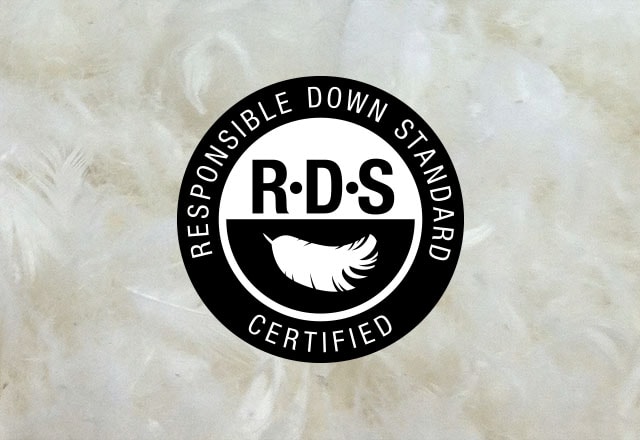
The North Face is committed to improving animal welfare and traceability in the goose down and feather supply chain. We use down in outerwear, sleeping bags, footwear, and accessories because of its superior insulating properties and warmth-to-weight ratio. We created the Responsible Down Standard (RDS) in partnership with Textile Exchange, a global nonprofit dedicated to sustainability in the apparel and textile industry, and Control Union Certifications, an accredited third-party certification body with expertise in agriculture and farm systems. The RDS ensures that our down does not come from animals that have been subject to any unnecessary harm, such as force-feeding or live-plucking, provides traceability in our supply chain, and helps validate and track the down used in The North Face products from farm to finished garment. We started using RDS-certified down in our products in Fall 2015 and since Fall 2016 we have only purchased RDS-certified down. All of our down products are certified to the RDS.
The RDS has gained great momentum and adoption across the supply chain. In 2016, more than 3,000 farms across the world were certified to the RDS, covering an estimated 400 million birds at the farm level. More than 50 brands have started using RDS-certified down in their own products.
The North Face Down Supply Chain
Each step of our down supply chain before our products reach our customers is audited and certified to the Responsible Down Standard. Additionally, each time ownership of the ducks and geese or down material changes hands, a transaction certificate, or document from our certification organization verifying conformity to the RDS is issued.
The North Face Down Supply Chain
Each step of our down supply chain before our products reach our customers is audited and certified to the Responsible Down Standard. Additionally, each time ownership of the ducks and geese or down material changes hands, a transaction certificate, or document from our certification organization verifying conformity to the RDS is issued.
History of the Responsible Down Standard
A couple of years ago, we became aware of the potential mistreatment of animals in the food supply chain from which we sourced our down. We had been relying on self-declarations from our suppliers but it became clear that this was not sufficient. The down supply chain is very complex and the animals and raw materials typically change hands many times, making validation difficult. Due to this complexity, we were very deliberate in our development of the RDS and sought input from experts in animal welfare, standard development and materials traceability. A team from The North Face traveled to China and Eastern Europe to evaluate our supply chains in those regions. Because down can be sourced from small farms as well as large slaughterhouses, the team evaluated everything from hatcheries to family farms to processing facilities.
We developed a standard that addresses the down supply’s diverse challenges by tapping the expertise of two key partners, Control Union Certifications and Textile Exchange.